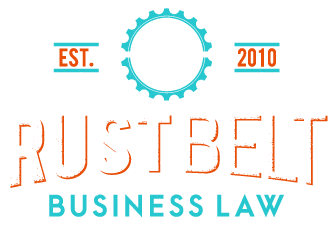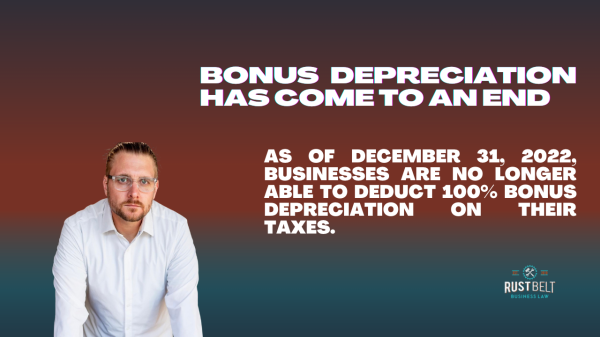As the old adage goes, all good things must come to an end. As of December 31, 2022, businesses are no longer able to deduct 100% bonus depreciation on their taxes.
The IRS has allowed businesses to deduct 100 percent of the cost of most types of property, other than real property, as bonus depreciation since late 2017. For example, if you purchased $100,000 in business equipment and began using it in 2022, you could deduct all $100,000 using 100% bonus depreciation. But beginning this year, this deduction will decline 20 percent per year until it expires to zero in 2027. This means that if you wait until 2023 to claim that $100,000 expense, you'll only be able to deduct $80,000 (80 percent).
Even though the time has passed to be able to rush out and purchase a bunch of business property before the end of 2022 in order to take advantage of the full deduction, you wouldn't necessarily want to do that anyway. For many businesses, there is an alternative to taking this deduction that is staying put for now.
The alternative to the 100% bonus depreciation deduction is found in IRC Section 179 expensing. Both options allow businesses to deduct:
- The cost of most types of personal property in a single year, including off-the-shelf computer software
- New and used property acquired by purchase from an unrelated party
- Various non-structural improvements to non-residential buildings after they are placed in service
These deductions also are not mutually exclusive; you can apply Section 179 expensing to qualifying property up to the annual limit and claim bonus depreciation for any remaining basis. Starting this year, when bonus depreciation will be less than 100 percent, any basis left after applying Section 179 and bonus depreciation will be deducted with regular depreciation over several years.
But there are some significant differences between the two deductions:
- Section 179 expensing is subject to annual dollar limits that don't apply to bonus depreciation. But the limits are so large that they don't affect most smaller businesses.
- Section 179 expensing requires more than 50 percent business use to qualify for and retain the Section 179 deduction. For bonus depreciation, you face the more than 50 percent business use requirement only for vehicles and other listed property.
- Unlike bonus depreciation, Section 179 expensing is limited to your net taxable business income (not counting the Section 179 deduction) and cannot result in a loss for the year.
- The 2022 Section 179 deduction is limited to $27,000 for SUVs. There is no such limit on bonus depreciation.
- You can use bonus depreciation to deduct land improvements with a 15-year class life, such as sidewalks, fences, driveways, landscaping, and swimming pools.
Changes to tax law can cause a lot of confusion and misinformation being thrown around. If you're interested in getting some assistance with your tax strategies, contact us to schedule a free consultation.




